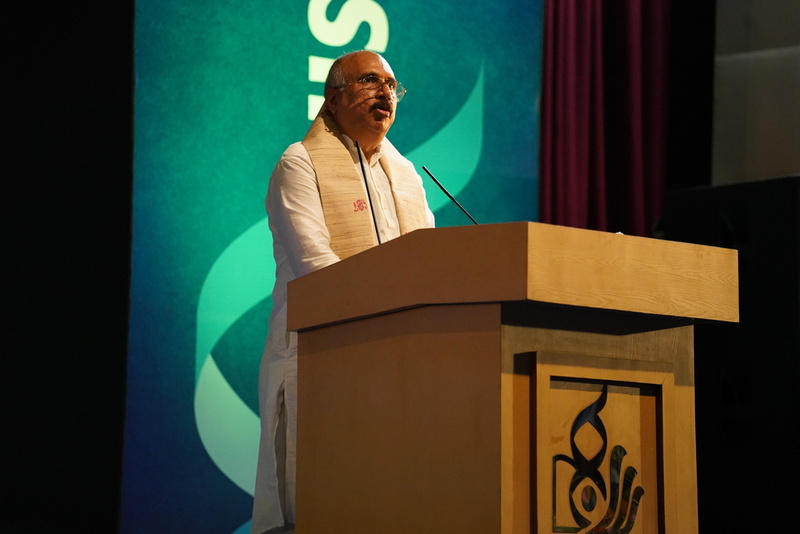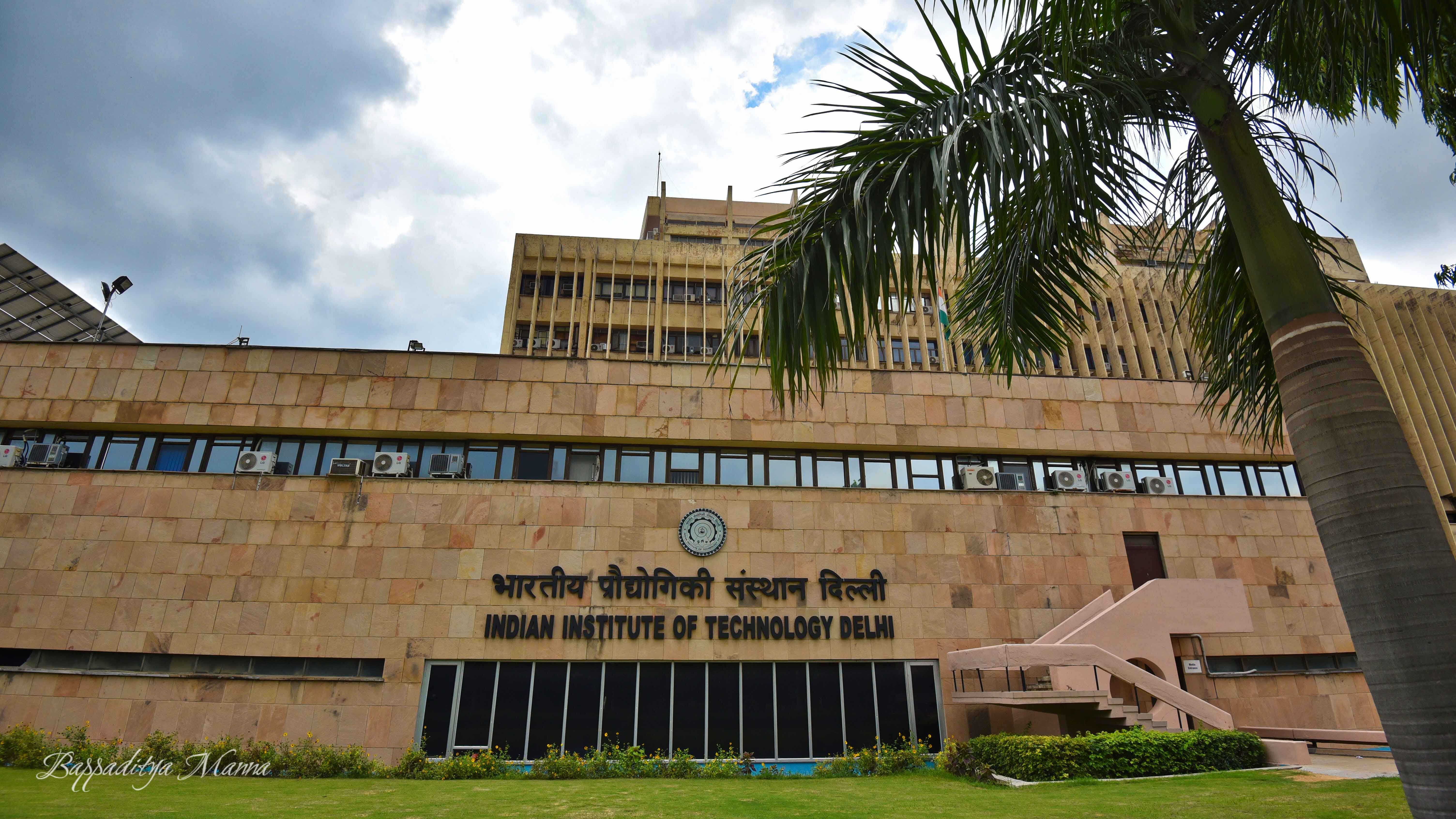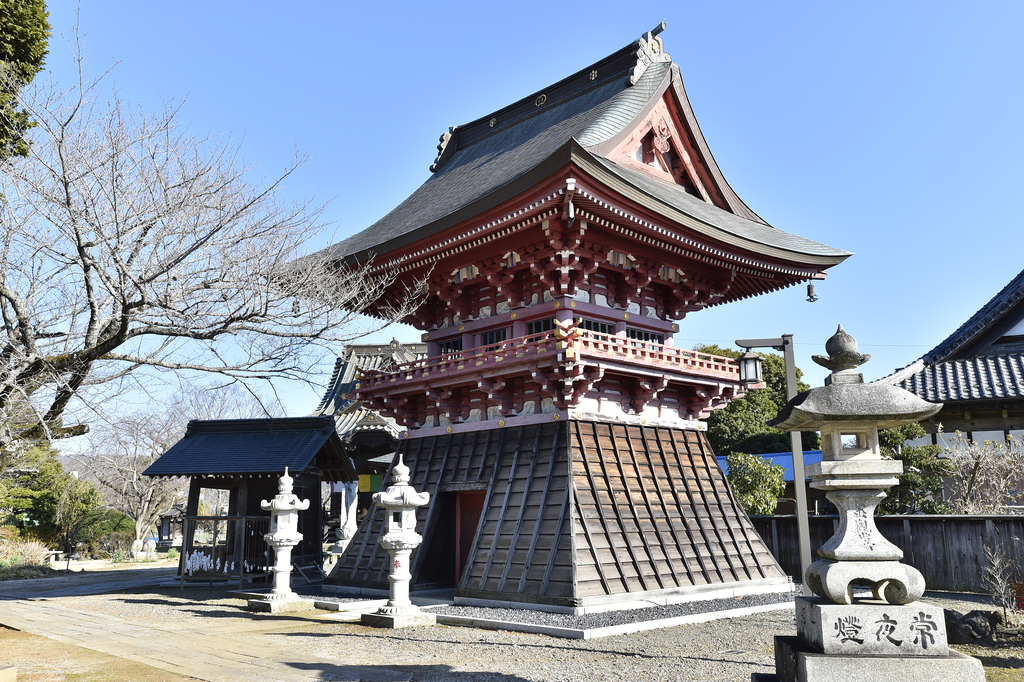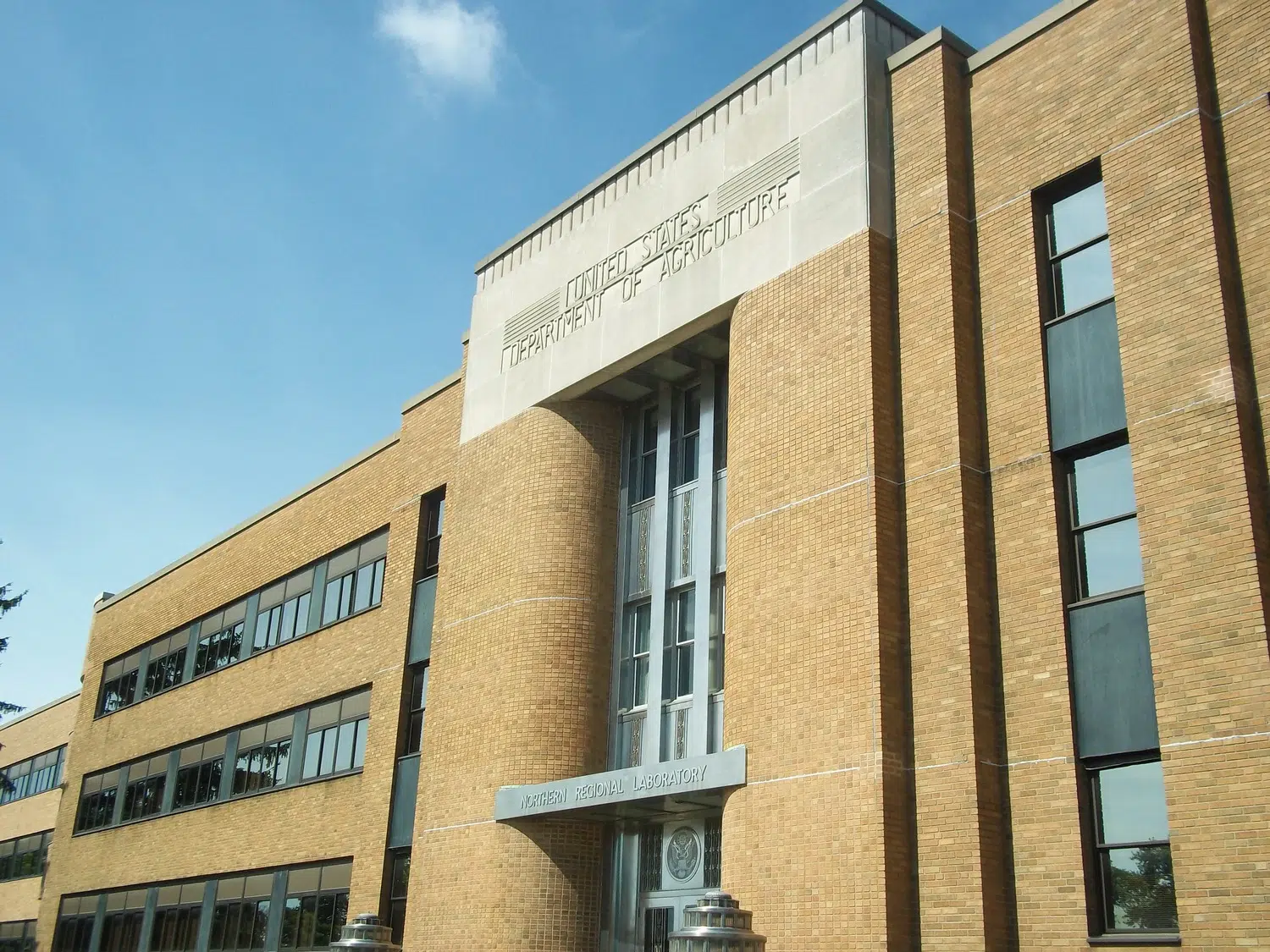
In Conversation with Director Sunil Khare
“Addressing global issues … requires an interdisciplinary approach and collaboration. No single discipline can tackle these problems from a whole perspective”. Prof. Sunil Kumar Khare brings over 30 years of experience in both academic and industrial research, and has received notable awards, including the United Nations-Amway Award in 1998 and the Malaviya Memorial Award for Senior Faculty by BRSI in 2018. Swarnendu and Abhirup met up with the newly-appointed director of IISER K to discuss his life, his experiences as an educator and his vision for the institute.
SS: To start, could you briefly share your journey in Indian science and academia, highlighting your experiences as both an administrator and a global academic, leading to your current role as director?
SKK: Thank you for your question. I’m honoured and privileged to be here. My journey in Biochemistry and Microbiology began at IIT Delhi, where I could leverage my passion for teaching over 30-35 years. I have guided a number of master’s and Ph.D. students and researched Industrial enzymes and -Extremophiles. I could attract a high level of externally funded projects. I held administrative roles as House Master of Student Affairs, President of- the Board of Student Publications, Chairman, GATE, and JAM for joint entrance for all IITs. and served as Dean of Research & Development, and Dean of Corporate Relations before joining as Director of IISER Kolkata.
SS: You mentioned being at IIT.
SKK: Yes, that’s correct. I was the university topper, and based on advice to pursue science, I attended Pantnagar University for my master’s in Biochemistry and minor in Microbiology.
SS: Where is that?
SKK: This is in Nainital. I completed my master’s at Pantnagar University, a renowned institution for allied subjects. Established in the 1960s with support from the University of Illinois, it offers rigorous education and has excellent faculty. Weekly quizzes and regular monthly exams fostered a concept-based learning approach. After my master’s, I joined CSIR as part of the first batch to receive fellowships through a written test. Then I thought about where to put my in this fellowship, and I was told that IITs are the best places to pursue work for research, which emphasise application orientations and translational research. So I chose the IIT Delhi.
AM: What about your postdoctoral experience?
SKK: Then, for postdoc exposure, I went to Japan, and I also went to the USA and returned. I joined as a scientist in the Government of India for some time. Thereafter I joined IIT Delhi as a faculty member and continued.
SS: You are in a unique position where you have experienced the same institute both as a student and as a teacher. How does that feel?
SKK: Experiencing an institution as a student and as a faculty gives a dual perspective and deepens insights into the system’s impact on students. My student time at IIT revealed its strengths and areas for improvement, allowing me to implement those insights as a teacher. This unique exposure provides a valuable advantage that others may not have. IITs provide lots of flexibility in teaching and research to students and faculty.
SS: Since you have worked in other countries like Japan and USA, what do you feel are the major differences between the way research is carried out in those countries and the way it is carried out in ours?
 Prof. Khare did his doctoral work at IIT Delhi. He later joined his alma mater as a professor of Biochemistry.
Prof. Khare did his doctoral work at IIT Delhi. He later joined his alma mater as a professor of Biochemistry.
SKK: My postdoc experience in Japan and the USA profoundly shaped my research habits. Their approach emphasises precision and perfection, with an intense work ethic and meticulously checking every detail. Their advanced instrumentation and strict standards greatly influenced me, as I had the freedom to work and try out my ideas; I learned a lot from their disciplined, curiosity-driven, and question-based approach to science.
AM: You’ve spent significant time in Indian academia, at IITs as well as IISERs. IITs are much larger, with multiple departments and a vast number of students, while IISERs are smaller, focusing on just a few core departments. Given the presence of IITs with their established brand and scale, what role do you think IISERs play in the Indian academic landscape?
SKK: IITs are primarily engineering institutions focused on science-based engineering education, whereas IISERs emphasise fundamental science and research education. IISERs aim to build a strong foundation in science and interdisciplinary science, which can later translate into applications for various kinds , including in engineering.
At IITs, students spend initial semesters learning basic sciences before moving on to core engineering disciplines and technology research. In contrast, IISERs offer more advanced science courses, providing a deeper understanding of scientific principles for science research.
For instance, while IITs might focus on quantum applications like quantum communication and computing, IISERs concentrate on the foundational aspects of quantum physics and chemistry. This distinction highlights the differing focus of these institutions.
SS: On a lighter note, will you tell us a little about your school life? How has school life shaped you?
SKK: I come from a very modest background. My father worked for the Government of India, so we moved frequently, and I attended various government schools. Early on, I realised that to succeed; I had to work harder and be among the top students to secure fellowships that would support my education. This drive pushed me to always put in extra effort, and I was fortunate to receive fellowships throughout my academic journey, which allowed me to continue studying. To this day, I remain committed to learning.
SS: During the INYAS inauguration, the director of the SN Bose National Centre for Basic Sciences noted that India’s scientific initiatives often operate in isolation. Despite various government scholarships and outreach programs, overall progress appears limited. We need a cohesive framework to integrate these efforts and enhance collaboration among scientists, students, faculty, and administrators to improve scientific progress and outreach. What is your take on this?
SKK: Yeah, that is a good question. Addressing global issues like healthcare challenges, drug resistance, climate change, and sustainable energy requires an interdisciplinary approach and collaboration. No single discipline can tackle these problems from a whole perspective. For example, at IISER, researchers developing anti-snake venom needed input from collaboration with AIIMS medical experts to ensure efficacy. Mission-bound projects involving multiple institutions and disciplines are essential for meaningful progress.
SS: It’s essential to recognize that different societal strata, including rural and marginalised groups, face unique challenges. Their issues must be addressed, as their lack of access to resources is a significant problem that requires our attention. How can we involve the rural and impoverished populations in the main stakeholder process? While discussing interdisciplinarity, we often include various professionals, but we frequently hear that the lower strata feel excluded. What role should science administration play to ensure their inclusion?
SKK: The Government of India has launched several initiatives to address societal issues through science. For example, the Department of Science and Technology has a “Science for Society” division that funds projects for science based solutions for the problems faced in rural areas. As an example, one such project in Rajasthan focused on desalinating salt water using a simple, low-cost solar evaporation setup, providing a simple solution for areas having no access to large desalination plants.
Similarly, the Department of Biotechnology and other ministries support projects that apply scientific solutions to such problems. At IISER Kolkata, we also contribute through outreach initiatives like “Ek Pehel,” wherein we engage with school children, exposing and motivating them to science and education.
 The city of Tsukuba in Japan, where Prof. Khare carried out his post-doctoral research.
The city of Tsukuba in Japan, where Prof. Khare carried out his post-doctoral research.
AM: A more academic question now. Considering your experience in both academia and industry, which role did you find creatively more demanding? Which one was more interesting?
SKK: Science stems from a natural curiosity to understand the phenomenon. Basic science begins with questions about phenomena, while translational science applies these discoveries to provide solutions. Lab research leads need to be scaled up, tested for cost-effectiveness, and adapted for practical use. Some scientists focus on discovery, while others aim to translate those findings into applications, illustrating the journey from science to technology.
SS: My next question comes from my experience as a student. In the past few years, the KVPY program has been discontinued; moreover, many PhD scholars are concerned about insufficient funding for their research. Some of my seniors who have worked abroad mention a stark contrast in funding between India and many western countries.. What are your thoughts on this?
SKK: The government isn’t cutting science funding; we have launched Anusandhan National Research Foundation (ANRF). The ANRF aims to seed, grow and promote research and development (R&D) and foster a culture of research and innovation throughout India’s universities, colleges, research institutions, and R&D laboratories. ANRF will act as an apex body to provide high-level strategic direction of scientific research in the country as per recommendations of the National Education Policy (NEP). Though the US has more resources, India is progressing at a faster pace similar support for science. . KVPY is subsumed with the INSPIRE fellowship scheme, as an answer to your next part of question.
AM: From institutes such as the IISERs and the IITs, what often happens is, after receiving their B.Sc or M.Sc degree, lots of students take up their doctoral work outside the country. Do you feel that this is a problem that needs to be addressed?
SKK: It is not a problem, it is a question of choice. Some people stay back also, such numbers are on increase with Indian institutions coming at par with global institutions. Some students want to go for a job, some want to go for industry. So it depends what one is aspiring for.
AM: That is certainly true, but the problem I was referring to is the fact that we might potentially be losing a large section of the intelligent population in this process. So you feel that this is not an issue?
SKK: I am saying it is their choice actually. Opportunities are here also, and there also, it is your choice and path you want to choose.
AM: Should we do something to make it more lucrative for them to stay here? Can something be done in that regard?
SKK: I think there are many examples where people stayed back in the country and did great. I think incubation centres, research parks , industry-academia interactions and Start ups promotions are good initiatives.
SS: Would you say that that constitutes a brain drain?
SKK: The term “brain drain” has become outdated, as the boundaries for scientific pursuit have blurred. Contributions to global problems can be made from anywhere, whether in India or abroad. Whether addressing climate change here or in the US, the aim is to serve humanity.
AM: Okay, a bit of a mundane question now. In this institute, the IPhD program has been discontinued in DMS and DCS in recent years. Do you see any future of this program, or do you think other departments will also follow suit? Do you think such a program benefits the institute?
SKK: I think this program is in tune with or in sync with the NEP, which mandates multiple entry and exits. So, this program to me appears a very good example of NEP implementation, wherein if students want to exit, they can exit after master, or can continue for Ph.D. To me it appears a good program. I do not think that it is dying, it’s actually very much vibrant.
 National Centre for Agricultural Utilization Research- USDA Peoria USA, where Prof. Khare was a visiting fellow.
National Centre for Agricultural Utilization Research- USDA Peoria USA, where Prof. Khare was a visiting fellow.
AM: Another IISER-specific question. You have been here for around three months now. How do you wish to see this institute five years down the line?
SKK: I aim to advance the institution by fostering interdisciplinary collaboration among departments. For instance, I envision biologists and physicists working together on biophysics issues to create structured, problem-based partnerships. One initiative I proposed is to develop a Chemical Biology Programme to be offered jointly by Departments of Chemical and Biological Sciences. Additionally, I plan to create online certificate courses that leverage our faculty’s expertise , benefiting students and the wider community.
SS: Are you thinking of something along the lines of NPTEL?
SKK: I’m exploring online certificate courses at IISER Kolkata, similar to NPTEL. For example, I suggested our Computer Science faculty create a course on AI in healthcare for our students and AIIMS doctors. Another one thought is on Bio-economics.
I’m also thinking of new programs like a BS-MS in Sustainable Sciences with cross-department collaboration and a BS-MBA program with IIM Calcutta, focusing on research and industrial management to equip students with a strong science foundation and valuable management skills.
SS: If other institutes can have BA-MBA, why not science and MBA, right?
SKK: Yes! Why not science and MBA, this is what I was thinking. Another thing I have in mind is the generation of more eternally funded projects. By external, I mean external research grants from various funding agencies.
AM: Such research grants must come from the government, right?
SKK: Funding from SERB, DST, DBT, and NARF is vital for research. Focussed projects based on National and global priority We should focus on generating our own funds for more flexibility and self sustainability.
SS: All IITs in general have some sort of program that supports the EWS students, but you typically don’t hear of such programs at the IISERs. This is not to demean anyone, but certain categories of students do receive fee waivers as per government norms, but the EWS students don’t. Is there any way we can address this?
SKK: Actually the EWS fee waiver is the government’s defined scheme, and we are trying to get it considered for IISERs as well.
SS: IITs and IISERs often promote a vibrant system of sports and cultural meets that encourage interaction among diverse ideas. However, within the IISER system, no such structure exists for promoting scientific interactions among the students. How do you feel about establishing an Inter-IISER Science Meet to complement our existing discipline-focused meetings? This will allow students from all IISERs, including the undergraduates, to present their research and ideas, fostering collaboration and innovation across various backgrounds and disciplines.

SKK: This is a very welcome idea. I will put it to all IISERs Directors meetings and I will be happy to take it forward.
SS: Having joined recently as director, which aspects of the institute do you think need improvement?
SKK: The new student hostel approved by the government will enhance comfort, so we must expedite its construction. We should also improve facilities, like developing an athletic ground and Indoor sports infrastructure. I plan to prioritise these improvements, but need time to understand the situation, having been here for only three months.
AM: We are almost at the end of the interview. Do you have any message for the InScight team, and more broadly, for the IISER Kolkata community?
SKK: Congratulations on this great initiative! My message is to strive for excellence, and let you know that we are here to support your educational aspirations. Please make the most of the opportunities and excel in your careers. Best wishes to all of you. Thank you!